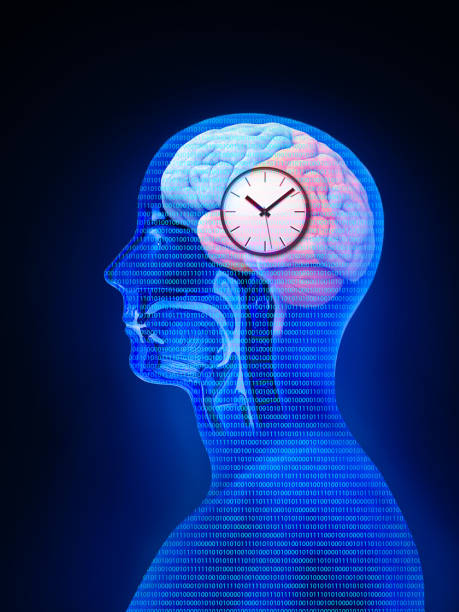Chronodiet: Syncing Your Meals with Your Body Clock
Time isn't just a measure of hours and minutes—it's a powerful influencer of our biological processes. What if we could harness the rhythms of our body to optimize our nutrition? Enter chronodiet, a revolutionary approach that aligns eating patterns with our internal circadian rhythms. But how does it work, and can it really transform our health?

The Science Behind Chronodiet
Chronodiet is rooted in the field of chronobiology, which studies the natural internal processes that regulate our body’s functions over a 24-hour cycle. These processes, known as circadian rhythms, influence everything from hormone production to metabolism. By aligning our eating patterns with these rhythms, chronodiet aims to optimize nutrient absorption, energy levels, and overall health.
Research has shown that our bodies process food differently depending on the time of day. For instance, insulin sensitivity is typically higher in the morning, making it an ideal time for consuming carbohydrates. As the day progresses, our ability to metabolize fats improves, suggesting that fattier meals might be better tolerated later in the day.
Timing is Everything: The Core Principles
The fundamental tenet of chronodiet is that when we eat is just as important as what we eat. This approach advocates for:
- Eating larger meals earlier in the day
- Limiting food intake in the evening
- Maintaining consistent meal times
- Aligning food choices with the body’s circadian rhythms
By following these principles, proponents of chronodiet believe we can enhance our body’s natural metabolic processes, potentially leading to improved weight management, better sleep quality, and reduced risk of chronic diseases.
Chronodiet vs. Traditional Dieting
Unlike conventional diets that focus primarily on calorie counting or macronutrient ratios, chronodiet emphasizes the timing of meals. While it doesn’t necessarily restrict specific food groups, it does encourage eating in harmony with our body’s natural rhythms.
Traditional diets often lead to feelings of deprivation and can be difficult to maintain long-term. Chronodiet, on the other hand, works with our body’s natural processes, potentially making it easier to adhere to and more sustainable over time.
Potential Benefits of Chronodiet
Emerging research suggests that aligning our eating patterns with our circadian rhythms could offer numerous health benefits:
- Improved insulin sensitivity and glucose metabolism
- Enhanced weight management
- Better sleep quality
- Reduced inflammation
- Improved cardiovascular health
A study published in the journal Obesity found that participants who consumed their largest meal earlier in the day lost more weight and showed improvements in metabolic markers compared to those who ate their largest meal later.
Challenges and Considerations
While chronodiet shows promise, it’s not without challenges. Adapting to new meal times can be difficult, especially for those with rigid work schedules or social commitments. Additionally, the optimal timing of meals may vary between individuals, depending on factors such as genetics, age, and lifestyle.
It’s also important to note that while timing is crucial in chronodiet, the quality and quantity of food still matter. A balanced, nutrient-rich diet remains essential for overall health.
Implementing Chronodiet: Practical Tips
For those interested in exploring chronodiet, here are some strategies to get started:
- Gradually shift your largest meal to earlier in the day
- Try to finish eating at least 3 hours before bedtime
- Maintain consistent meal times, even on weekends
- Pay attention to your body’s hunger and fullness cues
- Choose nutrient-dense foods that align with your body’s needs at different times of day
The Future of Chronodiet
As research in chronobiology continues to advance, we may see more personalized approaches to chronodiet. Wearable technology and AI could potentially help individuals optimize their meal timing based on their unique circadian rhythms and lifestyle factors.
Chrono-Wellness: Fascinating Facts
- Our body’s circadian rhythms are influenced by light exposure, affecting hormone production and metabolism
- The liver has its own internal clock, which impacts how it processes nutrients throughout the day
- Eating late at night can disrupt the body’s natural fasting period, potentially affecting metabolism and sleep quality
- Studies suggest that consuming protein-rich foods in the morning can help reduce evening food cravings
- The timing of caffeine consumption can significantly impact its effects on alertness and sleep
In a world where we’re constantly seeking ways to optimize our health, chronodiet offers a fascinating perspective on the power of timing in nutrition. By aligning our eating patterns with our body’s natural rhythms, we may unlock new pathways to improved well-being. As with any dietary approach, it’s essential to consult with healthcare professionals and listen to your body’s needs. The future of nutrition may not just be about what’s on our plates, but when those plates are served.





